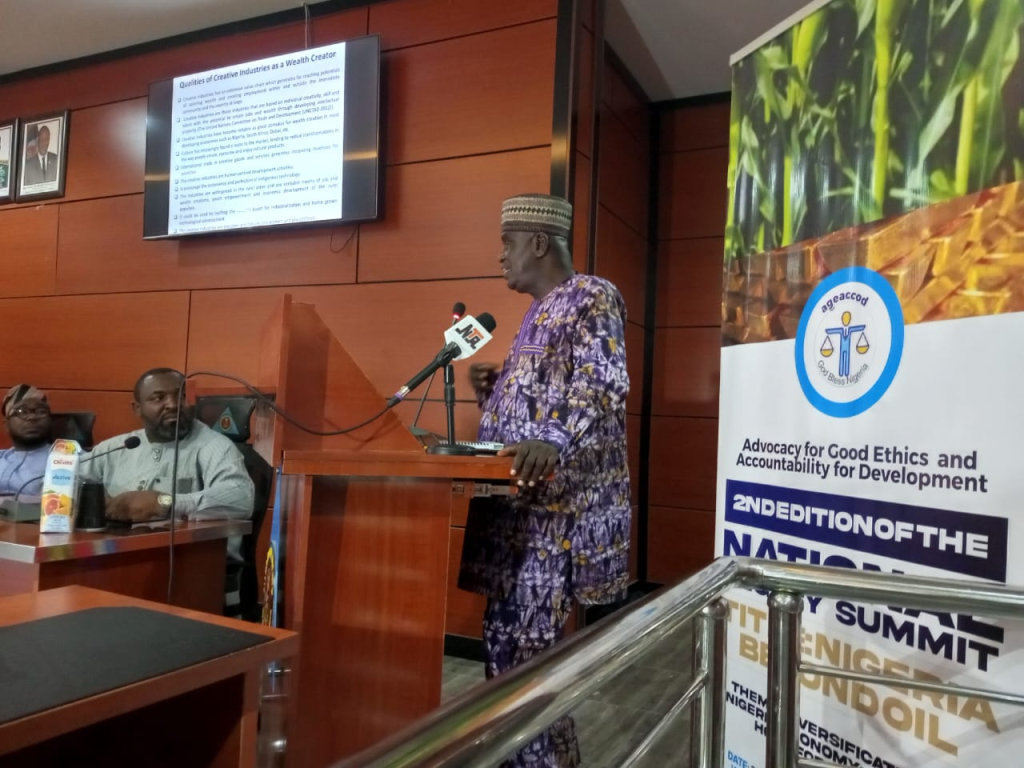Stakeholders from various sectors have called on the Federal Government, FG, to make a significant U-turn after six decades of heavy reliance on petroleum resources.
They emphasized that Nigeria possesses vast arable land, a large labor force, and a vibrant entrepreneurial spirit, which could be harnessed to drive growth and create employment opportunities.
The call was made by the executive director, Advocacy for Good Ethics and Accountability Development, AGEAD, Mr. Henry Thomas at its 2nd legacy summit, held, during the week, in Abuja.
He said: “The year 2023 has been a very challenging and difficult year for almost everyone in the country. Nigeria as a country has no business with poverty, the country has rich natural and human resources.
“Nigeria was a leading producer of many sectors such as the apparel, garment, arts and crafts, cosmetics, and the beauty industry and agro-commodities contributed immensely to the growth of our nation’s Gross Domestic Product (GDP).

“However, the discovery of oil in 1956 marked a major setback to other important productive sectors of the country’s economy. Oil has been almost like a national anthem ever since my existence but quite unfortunate that leaders have come and gone without a solution. It is on this note that it is imperative to think and proffer solutions because the only way is to know the problem and the solution finds its way.
“The message I’m trying to pass is that our adventure and expedition into oil for the past 60 years hasn’t led us anywhere and it is time for us to make a U-turn back to where we are coming from, let’s go back to Agriculture, let’s go back to mining, let’s go back to culture and tourism, let’s go back to technical education and production.”
Speaking on the need for the country to tap into the wealth of the creative industry, the Rector Federal Polytechnic Auchi Edo state, and former Director of Performing Arts, National Council for Arts and Culture, Mr. Sam Agbi, said: “Tourism goes for a reason, there must be an attraction. Without attraction, there is no tourism.
“You leave your house for a purpose. You don’t just travel just like that, there must be a reason and so you marry tourism and culture. But, in the case of Nigeria, it is only cultural tourism that we have a comparative advantage.
“Nigeria has no comparative advantage when you say you want to develop beach tourism. Which mountain do you have that you can compare with others in the world? Is it wildlife? Is it conferences, I don’t know for now. So, the only tourism we can market is cultural tourism and if we develop that aspect of cultural tourism, Nigeria has to have a huge amount of money in terms of foreign exchange and arrivals.
“One of the qualities of this creative industry for instance is that some of them are a royal economy, they stimulate the royal economy because they are residing with the people. Whenever I tell my children that I want to travel home, they will say ok because there is a policy of you have to follow me to know your home.
“So, what I am saying is that the incentives at home are not favorable. Nobody would want to stay in the village and not have facilities but those with wealth, those with creative industries, most of them are in the village, they reside with the people. If you don’t develop it, you’re not developing the rural economy. If a government really wants to develop that aspect of the economy, it is helping to generate income for the people that dwell in that environment.”
VANGUARD






